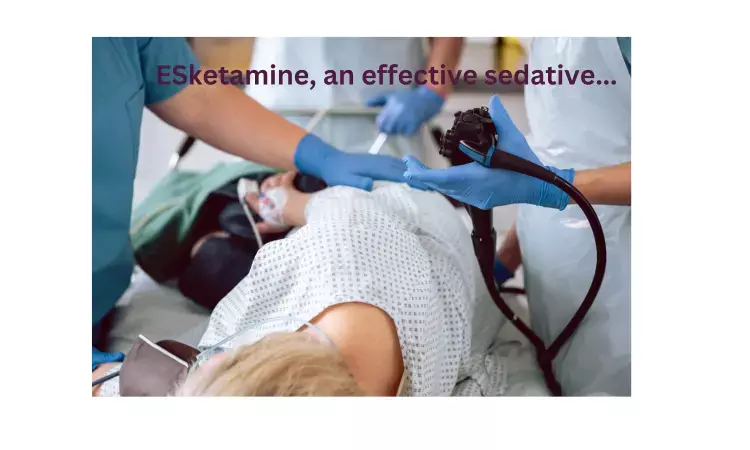- Home
- Medical news & Guidelines
- Anesthesiology
- Cardiology and CTVS
- Critical Care
- Dentistry
- Dermatology
- Diabetes and Endocrinology
- ENT
- Gastroenterology
- Medicine
- Nephrology
- Neurology
- Obstretics-Gynaecology
- Oncology
- Ophthalmology
- Orthopaedics
- Pediatrics-Neonatology
- Psychiatry
- Pulmonology
- Radiology
- Surgery
- Urology
- Laboratory Medicine
- Diet
- Nursing
- Paramedical
- Physiotherapy
- Health news
- Fact Check
- Bone Health Fact Check
- Brain Health Fact Check
- Cancer Related Fact Check
- Child Care Fact Check
- Dental and oral health fact check
- Diabetes and metabolic health fact check
- Diet and Nutrition Fact Check
- Eye and ENT Care Fact Check
- Fitness fact check
- Gut health fact check
- Heart health fact check
- Kidney health fact check
- Medical education fact check
- Men's health fact check
- Respiratory fact check
- Skin and hair care fact check
- Vaccine and Immunization fact check
- Women's health fact check
- AYUSH
- State News
- Andaman and Nicobar Islands
- Andhra Pradesh
- Arunachal Pradesh
- Assam
- Bihar
- Chandigarh
- Chattisgarh
- Dadra and Nagar Haveli
- Daman and Diu
- Delhi
- Goa
- Gujarat
- Haryana
- Himachal Pradesh
- Jammu & Kashmir
- Jharkhand
- Karnataka
- Kerala
- Ladakh
- Lakshadweep
- Madhya Pradesh
- Maharashtra
- Manipur
- Meghalaya
- Mizoram
- Nagaland
- Odisha
- Puducherry
- Punjab
- Rajasthan
- Sikkim
- Tamil Nadu
- Telangana
- Tripura
- Uttar Pradesh
- Uttrakhand
- West Bengal
- Medical Education
- Industry
Esketamine pretreatment may reduce incident postpartum depression after cesarean section

In a recent study, researchers have discovered that the intraoperative use of esketamine, an enantiomer of ketamine, may significantly reduce the incidence of postpartum depression (PPD) in women undergoing cesarean section. This study was published in the journal BMC Anesthesiology by Shixia Xu and colleagues. The study, which involved 319 parturients, compared the effects of esketamine with a control group receiving a saline solution.
The randomized trial administered 0.2 mg/kg of esketamine to the study group during the cesarean section, while the control group received an equivalent volume of saline. The drugs were pumped for 40 minutes starting from the beginning of the surgery.
Results from the study demonstrated a noteworthy decrease in the incidence of PPD, as measured by Edinburgh Postnatal Depression Scale (EPDS) scores, at 4 days post-surgery in the esketamine group compared to the control group (13.8% vs. 23.1%, P = 0.0430). However, this positive effect was not sustained at 42 days after surgery (P = 0.0987).
Furthermore, the study found that esketamine had a notable impact on reducing pain, as evidenced by lower Pain Numerical Rating Scale (NRS) scores at 6 h, 12 h, and 24 h post-operation. Additionally, the use of vasoactive drugs during surgery was significantly reduced in the esketamine group (P < 0.05), indicating potential benefits in pain management.
Despite the promising outcomes, researchers noted an increase in maternal side effects associated with esketamine. The incidence of dizziness (17.0%), blurred vision (5%), illusion (3.8%), and drowsiness (3.8%) was higher in the esketamine group compared to the control group (P < 0.05).
The findings suggest that intraoperative injection of esketamine at a dose of 0.2 mg/kg may offer a protective effect against postpartum depression during the immediate postoperative period. However, the observed side effects underscore the importance of carefully weighing the risks and benefits of esketamine administration in this context.
Reference:
Xu, S., Yang, J., Li, J., Zhang, M., Sun, J., Liu, Q., & Yang, J. Esketamine pretreatment during cesarean section reduced the incidence of postpartum depression: a randomized controlled trail. BMC Anesthesiology,2024;24(1). https://doi.org/10.1186/s12871-023-02398-1
Dr Riya Dave has completed dentistry from Gujarat University in 2022. She is a dentist and accomplished medical and scientific writer known for her commitment to bridging the gap between clinical expertise and accessible healthcare information. She has been actively involved in writing blogs related to health and wellness.
Dr Kamal Kant Kohli-MBBS, DTCD- a chest specialist with more than 30 years of practice and a flair for writing clinical articles, Dr Kamal Kant Kohli joined Medical Dialogues as a Chief Editor of Medical News. Besides writing articles, as an editor, he proofreads and verifies all the medical content published on Medical Dialogues including those coming from journals, studies,medical conferences,guidelines etc. Email: drkohli@medicaldialogues.in. Contact no. 011-43720751


